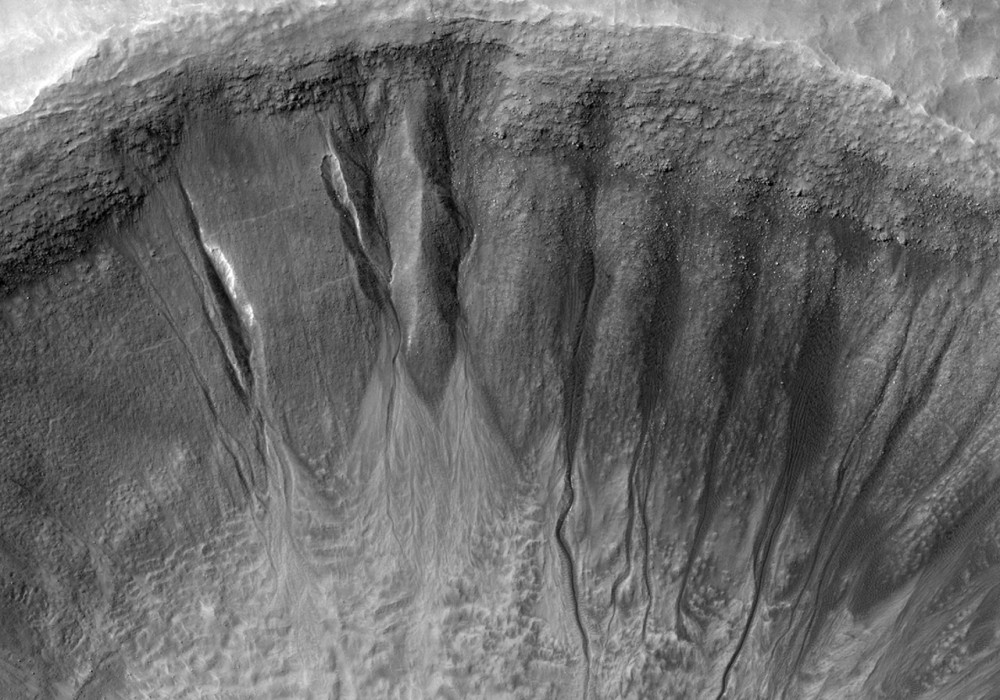This impact crater has gullies incised into its walls on the north and eastern sides. A couple of gullies on the north wall are unusual because a segment in the middle becomes wider than the upslope segment, and then narrows again downslope.
This indicates the ground was weaker here and/or that more powerful erosion took place here. Perhaps subsurface water was concentrated here, or the widened gullies are forming in a material that is coating the crater walls, instead of forming in the rock walls.
Another interesting difference is that the gullies to the east have darker central channels that extend out onto the floor of the crater, indicating they may be eroding a different material or perhaps have been active more recently.
Along with this observation’s stereo pair, the three-dimensional form of these gullies can be compared, especially to see how the channel shape varies downslope.
Written by: Patrick Russell (2 November 2011)
This is a stereo pair with ESP_024087_1410 .
More info and image formats at http://hirise.lpl.arizona.edu/ESP_023665_1410
Image: NASA/JPL/University of Arizona
